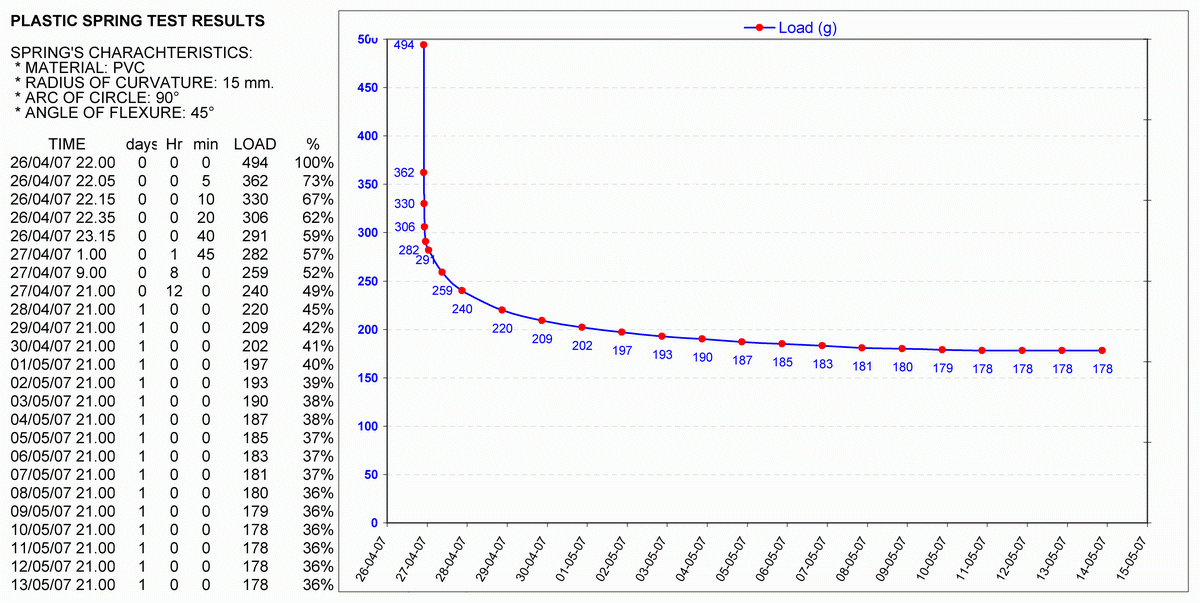 |
. PLASTIC SPRING TEST OF THE LOAD DECAY OF A PRE-LOADED SPRING vittorio.scialla@strumentiperleaziende.com |
| PURPOSE: | To measure the decay of the load of a pre-loaded plastic spring over time. |
| TEST SAMPLE: | A
PVC plastic spring having the following characteristics:
|
| TEST FIXTURE: | The
plastic spring was loaded as follows:
 |
| TEST TEMPERATURE: | Room temperature (22-25°C) |
| TEST RESULTS: |
 |
| COMMENTS AND CONCLUSIONS: | The
load of a pre-loaded plastic springs tends to decay to about 1/3 of its
initial value.
The decay occurs mainly in the first hours, and then stabilizes within a few days. By heating the spring with a hot air flow, the spring's load tends to further reduce itself, and later partially recovers. The spring never looses its residual load and can be used (at room temperature) in applications wherein it is required to be pre-loaded, and then is further flexed momentarily, like in handles of doors or in electrical pushbuttons. |